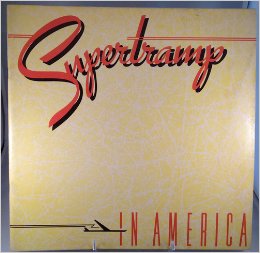The Film, Avalon
If pressed to name my favorite movie of all time, I’ll either answer Rear Window, Hitchock’s 1954 suspense thriller, or Avalon, Barry Levinson’s 1990 family biopic. The latter barely registered at the box office when it was released during my final semester of college, but its absence from Best Picture contention a few months later was – in my mind – a glaring omission. I thought it was cinematic perfection, the very reason we have “the movies.” It’s also the kind of film that is no longer made. But back in 1990, Levinson, riding high after his Oscar win for Rain Main two years earlier, was largely given free rein to write and direct whatever he wished, and drawing from his own childhood, he struck gold with Avalon, a tale about the fragmentation of the family – and perhaps of society itself – after the rise of television and suburbia.
My roommate Mark and I had seen a preview for the film on TV, and we decided to devote a weekday evening to watch it at the theater near the capital in Madison, Wisconsin. The addition of a couple of young women – one of whom was transporting us to and from the movie – initiated a mild debate about which film to see: Avalon or Welcome Home, Roxy Charmichael. The latter wasn’t without merit: the poster offered an enticing Winona Ryder dressed in a hot pink dress, revealing quite a lot of leg, but cooler heads prevailed, i.e., Mark and I had made our decision and we weren’t budging, a dangerous position given the potential ridicule we might have garnered if the movie was a dud. Fortunately, by film’s end, all four of us were either suppressing tears, or – in the case of one of the women we were with – outright blubbering. It was one of those movies that struck a chord, with its themes of family, loss, and legacy.
No less important than the film itself was the haunting score by Randy Newman, which, although nominated, didn’t earn Newman his first Oscar win, however deserved (he could have just as easily won for his score for Awakenings that year, but that wasn’t nominated, and his first Academy Award win wouldn’t occur for another eleven years). The music from Avalon stayed with me for months afterward, actually waking me from dreams, all without the aid of additional viewings. I’d heard the score once, and my subconscious remembered it. It was that good.
I didn’t see the movie again until the fall of 1992, when I recorded a VHS tape it off of cable, and I purchased the soundtrack on CD around the same time, eventually transcribing some of the themes from the score into a “piano highlights” piece that I still have. Nearly thirty years later, while shopping at a record store in Columbus, Ohio, my son came across a vinyl copy of the soundtrack, and I came to learn that Reprise Records released the record in 2020 as part of its “The Sound of Movies (…and Television!)” series, a noble endeavor for the movie/vinyl enthusiast. I now own Avalon on CD, DVD and vinyl, and the movie poster adorns my basement wall. I’ve seen in probably twenty times or so, and over the years I’ve enjoyed showing it to my children and a few friends who I felt might respond well to it.
In 2015, Levinson and Newman were interviewed about the film during its 25th anniversary, and it’s well worth a read if you’re a fan of the movie or the score, or both.
Here’s hoping the movie gets more recognition in retrospect than it did upon its release.
